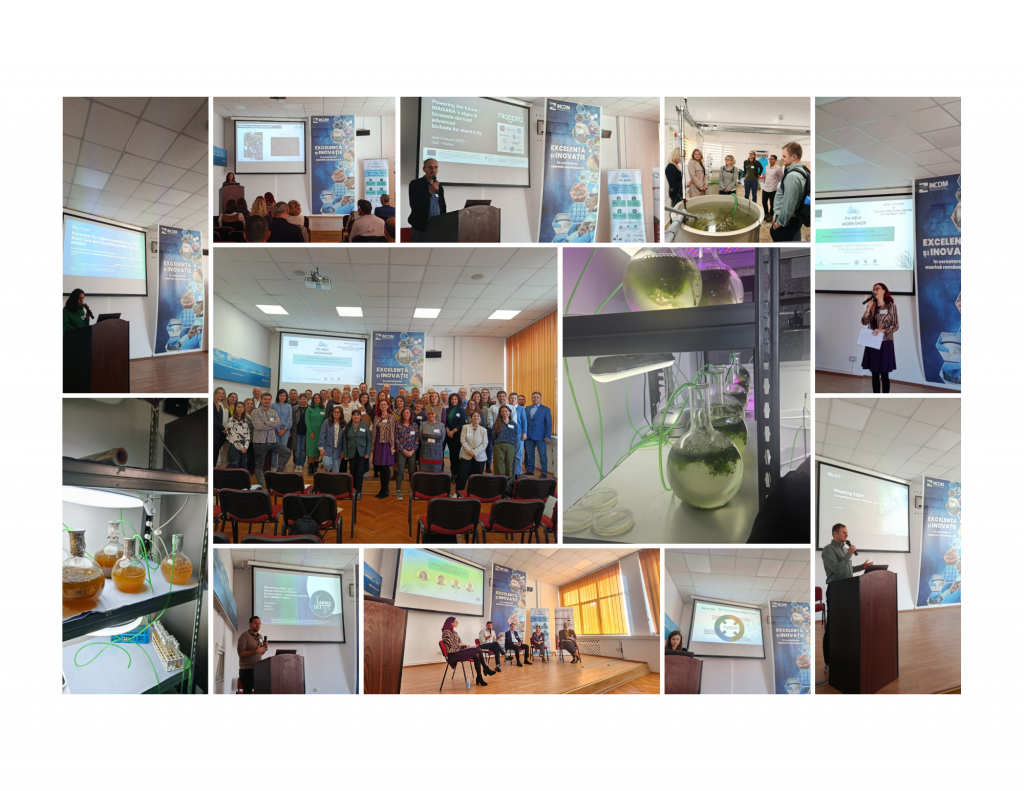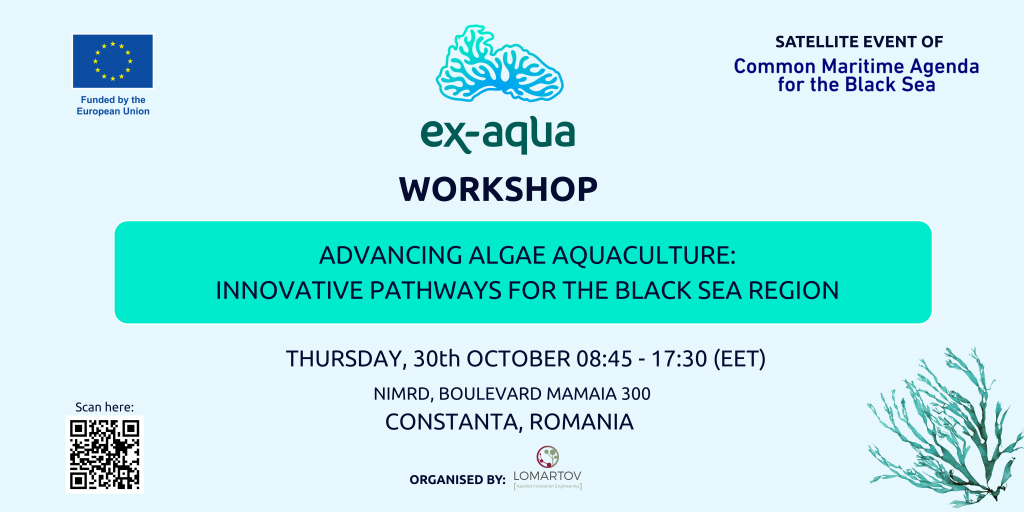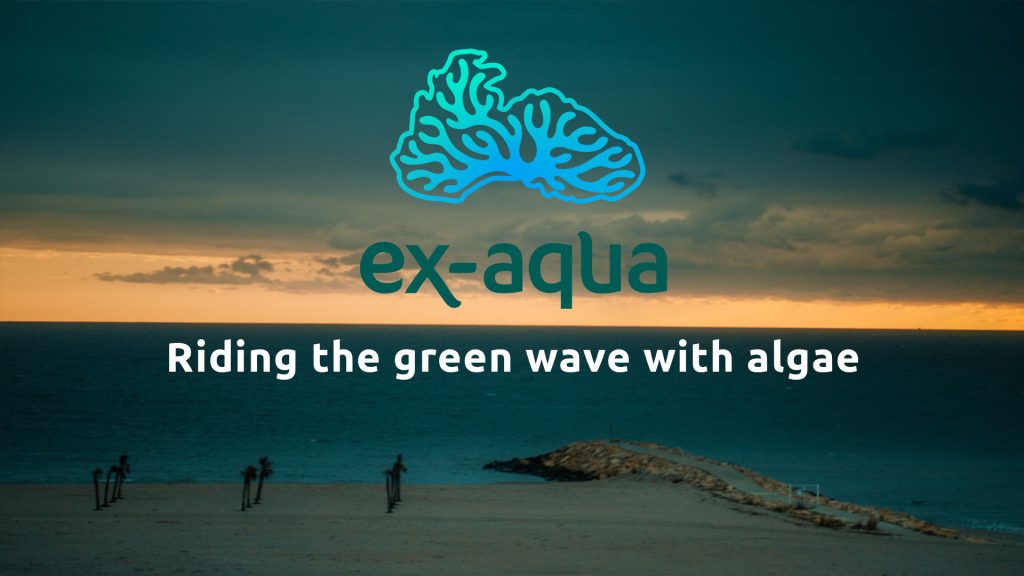In its first year, the EX-AQUA project delivered a pivotal milestone: a strategic roadmap to guide algae farming research at the National Institute for Marine Research and Development ‘Grigore Antipa’ (NIMRD). Developed by LOMARTOV, this comprehensive action plan charts a clear path to position NIMRD as a leader in marine algae aquaculture in Romania and across the Black Sea region.
Advancing sustainable aquaculture in the Black Sea: the EX-AQUA initiative
The Black Sea is not just a body of water—it’s a frontier for sustainable innovation. As a key component of the European Union’s blue economy, the region plays a critical role in marine environmental protection and sustainable development. The EX-AQUA project aims to elevate NIMRD’s role in this ecosystem, driving algae farming advancements through scientific excellence and fostering a regional innovation ecosystem.
Aquaculture in Europe and in the Black Sea
Aquaculture is a significant sector in Europe, with total production increasing by 7.1% between 2020 and 2022[i], a milestone year when global aquaculture production of animal species exceeded capture production. The EU prioritises sustainable aquaculture practices, aligning with initiatives like the Eu Green Deal and the Farm to Fork Strategy.
In the Black Sea, marine aquaculture plays a key role in food security and economic development. While smaller in scale compared to the Mediterranean, the sector is growing steadily, focusing primarily on fish and shellfish. Turkey is the leading country in the Black Sea’s marine aquaculture, but the other riparian countries are enhancing their capabilities and expanding infrastructure to boost their competitiveness in this sector.
The Black Sea, with its unique conditions, holds considerable potential for marine algae aquaculture, with projections suggesting significant yields. This expansion could diversify Europe’s algae sources for different commercial applications and contribute to the EU’s sustainability goals by improving water quality, sequestering carbon, and restoring marine ecosystems.
In Romania, marine aquaculture is largely absent, and freshwater aquaculture is modest, producing under 10,000 tons annually, mainly being focused on fish species. Despite this, Romania’s aquaculture sector is expanding, with significant potential for further economic development and for its environmental stability goals.

Strategic Roadmap for aquaculture in NIMRD
The EX-AQUA project has developed a comprehensive roadmap, outlining NIMRD’s long-term vision and mission for enhancing algae farming in Romania and in the Black Sea region. The three-year plan advances sustainable algae farming in the Black Sea, beginning with foundational research on native species and innovative cultivation methods supported by AI tools. In the second year, the focus shifts to optimising production, exploring applications in biofertilizers, nutraceuticals and biofuels and integration circular economy practices. The final year of the plan scales up commercial cultivation, supports environmental restoration and expands infrastructure at NIMRD, while public outreach raises awareness of algae’s economic and ecological benefits.
By implementing its strategic plan, NIMRD aims to reinforce its role as a regional centre of excellence in marine algae farming, leading sustainable aquaculture development in Romania and beyond.
The roadmap’s key recommendations focus on building NIMRD’s capacity in algae aquaculture, enhancing research and development (R&D) of algae farming, and fostering partnership with industry stakeholders. To advance the roadmap, key steps include advocating for harmonised regulations across the Black Sea and mobilising additional resources through national and international fundings. The plan also emphasises launching training programs and workshops, to promote capacity building and knowledge transfer in algae farming.
Through this strategic roadmap, NIMRD aims to become a regional hub for sustainable aquaculture innovation. By aligning science, sustainability, and collaboration, the Institute is paving the way for a resilient and prosperous algae aquaculture sector that supports Romania’s green transition and contributes to biodiversity in the Black Sea.
The full draft of the report is available as a public deliverable with the following link: https://ex-aqua.eu/wp-content/uploads/2025/07/EX-AQUA_D1.1_Roadmap-and-action-plan_final.pdf
[i] FAO. 2025. Guidelines for Sustainable Aquaculture. Rome. https://doi.org/10.4060/cd3785en





